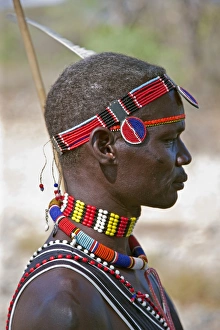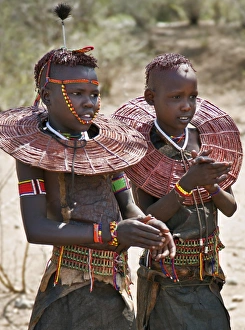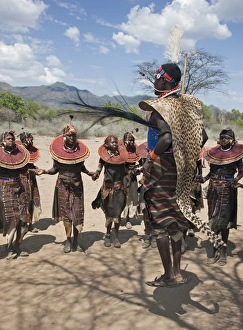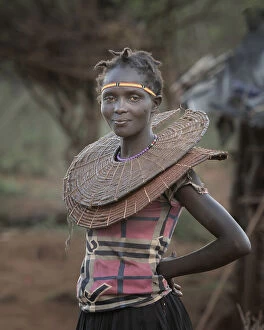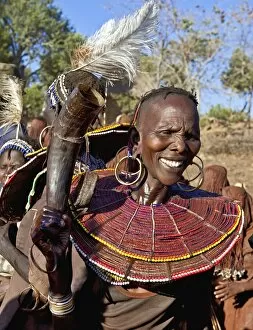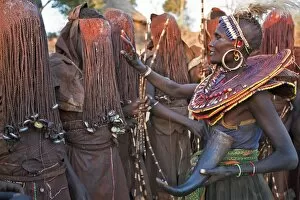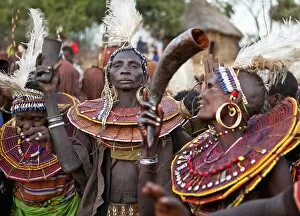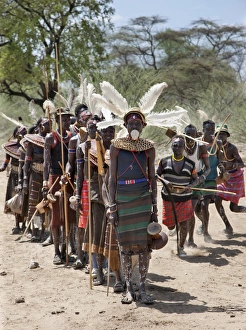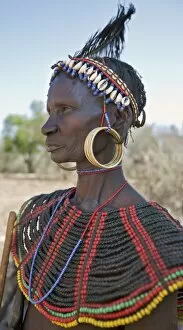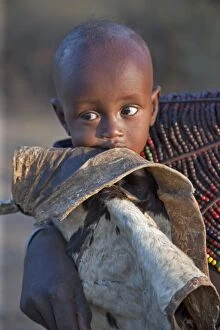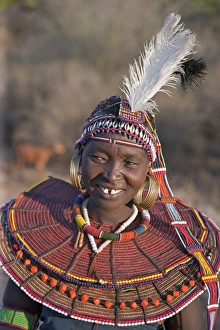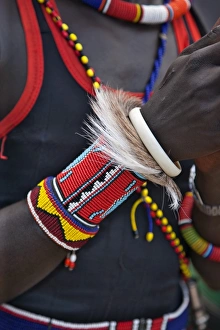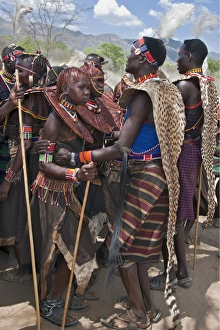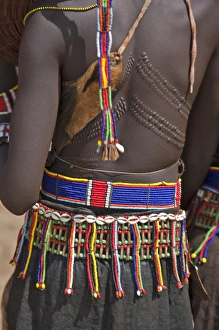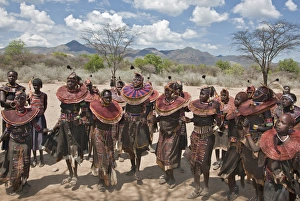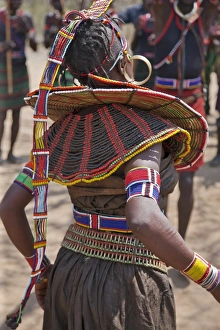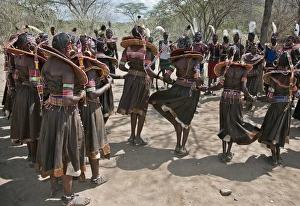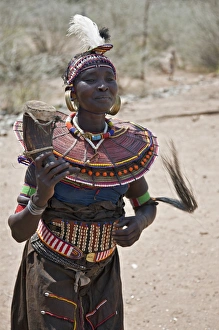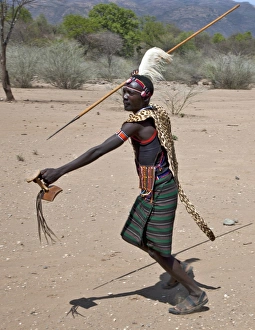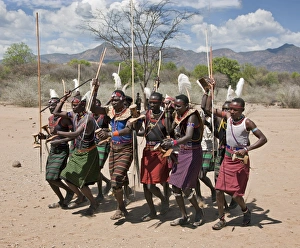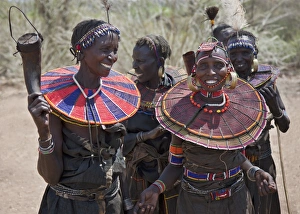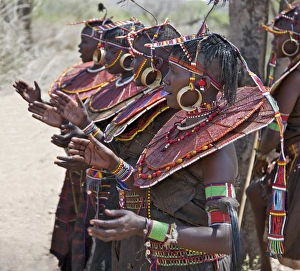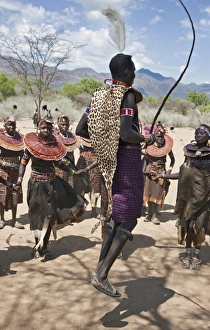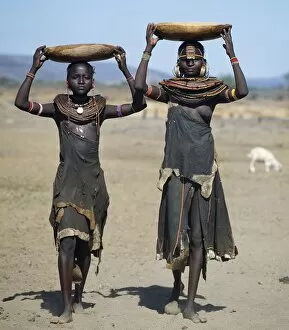Pokot Collection
The Pokot tribe, a group of pastoralists speaking a Southern Nilotic language
All Professionally Made to Order for Quick Shipping
The Pokot tribe, a group of pastoralists speaking a Southern Nilotic language, proudly showcase their rich cultural traditions through their distinctive attire and ceremonies. A Pokot man adorns himself with intricate beaded ornaments, symbolizing the pride he takes in his tribal heritage. Meanwhile, a brave Pokot warrior leaps gracefully into the air while surrounded by young women during an exuberant Atelo ceremony. This celebration marks an important milestone in his life. In contrast to the warrior's display of strength and agility, a young Pokot girl wears a traditional broad necklace made from hollow reed grass as a symbol of her uninitiated status within the community. Similarly, two unmarried Pokot girls wear unique ornaments that signify their availability for marriage. For several months following circumcision, Pokot boys participate in seclusion camps where they learn valuable lessons from tribal elders. Donning goatskins and concealing their faces behind masks crafted from wild sisal (sansevieria), these initiates engage in singing and dancing rituals that connect them to their ancestral roots. During the Ngetunogh ceremony's conclusion, an initiate experiences a profound transformation by wearing his mother's jewelry for one day before removing his wild sisal face mask—a symbolic representation of shedding old identities and embracing new responsibilities. Throughout this sacred rite of passage, mothers play an essential role by smearing fat over their sons' masks using cowhorn containers—an act believed to bless and protect them on their journey towards adulthood. The joyous atmosphere is heightened as these proud mothers sing and dance while holding high these significant vessels. Finally, after spending two to three months secluded within the camp walls, initiates emerge in single file processionals to celebrate Ngetunogh—rejoicing together as they embrace newfound roles within society. The vibrant culture of the Pokot tribe shines brightly through each captivating moment captured in Kenya—their customs serving as timeless reminders of unity, resilience, and the power of tradition.

